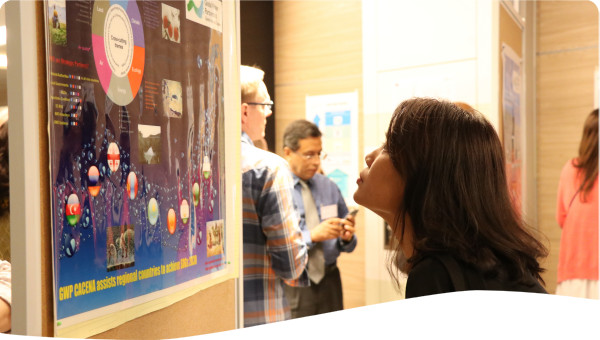Gathering and sharing wide-range and appropriate information for water and other professionals across sectors is the initial step in creating a rigorous knowledge exchange. The concept of knowledge in the knowledge management field is based on the knowledge pyramid (Figure 1) which depicts the hierarchy of the four following categories, thus differentiating between them (Riepl, 2012; Ackoff, 1989):
-
Data: Symbols reflecting the properties of objects and events, also perceived as raw facts and numbers. In regard to the water sector, these may be quantifiable and qualitative facts about the characteristics of water resources (such as quality, volumes, frequency of occurrence, spatial variability) (Tools C1; Tool C2.02; Tool C2.05).
-
Information: This category increases the usefulness of the previous one by processing it. It demonstrates how data can be assembled into meaningful patterns for specific purposes.
-
Knowledge: Processed information, which helps to answer “how” questions and imply trends and values discovered with the help of data. Both information and knowledge are distinguished from data as they stimulate change, unlike merely presenting raw facts (Henry, 1974).
-
Wisdom: This category entails operating with values and judgement. It can be seen as an agreement about commonly accepted methods of using water resources to ensure sustainability.
Figure 1. Data-Information-Knowledge-Wisdom Pyramid (Adapted from Ontotext, 2021)
 Tool -
Tool -


